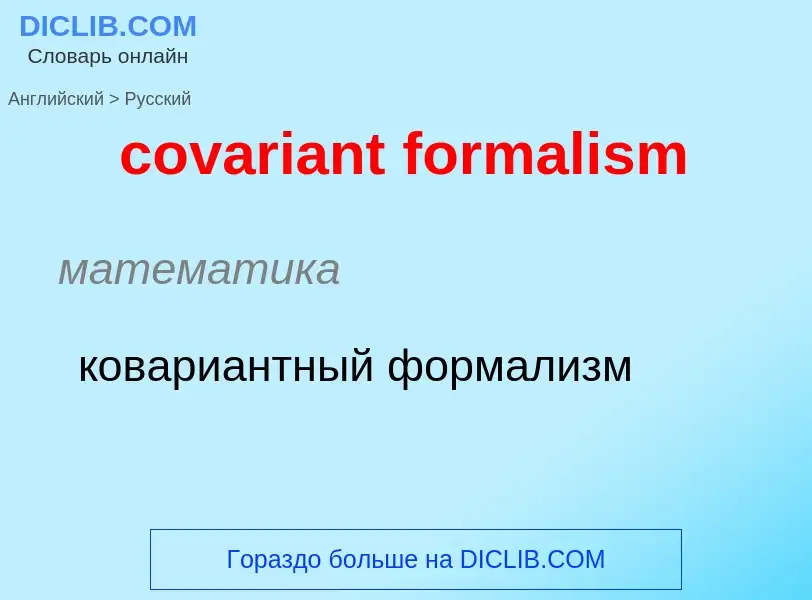ترجمة وتحليل الكلمات عن طريق الذكاء الاصطناعي ChatGPT
في هذه الصفحة يمكنك الحصول على تحليل مفصل لكلمة أو عبارة باستخدام أفضل تقنيات الذكاء الاصطناعي المتوفرة اليوم:
- كيف يتم استخدام الكلمة في اللغة
- تردد الكلمة
- ما إذا كانت الكلمة تستخدم في كثير من الأحيان في اللغة المنطوقة أو المكتوبة
- خيارات الترجمة إلى الروسية أو الإسبانية، على التوالي
- أمثلة على استخدام الكلمة (عدة عبارات مع الترجمة)
- أصل الكلمة
covariant formalism - ترجمة إلى الروسية
математика
ковариантный формализм
математика
формальный анализ
تعريف
ويكيبيديا
In object-oriented programming, a covariant return type of a method is one that can be replaced by a "narrower" type when the method is overridden in a subclass. A notable language in which this is a fairly common paradigm is C++.
C# supports return type covariance as of version 9.0. Covariant return types have been (partially) allowed in the Java language since the release of JDK5.0, so the following example wouldn't compile on a previous release:
More specifically, covariant (wide to narrower) or contravariant (narrow to wider) return type refers to a situation where the return type of the overriding method is changed to a type related to (but different from) the return type of the original overridden method. The relationship between the two covariant return types is usually one which allows substitution of the one type with the other, following the Liskov substitution principle. This usually implies that the return types of the overriding methods will be subtypes of the return type of the overridden method. The above example specifically illustrates such a case. If substitution is not allowed, the return type is invariant and causes a compile error.
Another example of covariance with the help of built in Object and String class of Java:

